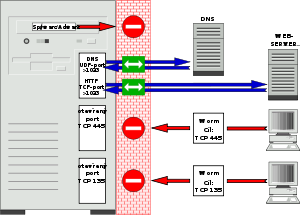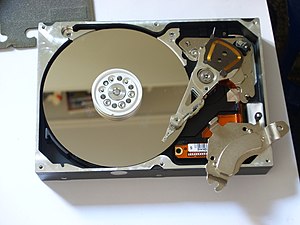Computer users always act surprised when they find a computer virus or malicious software on their computer. Computer viruses rarely come out of the blue and usually there are signs and symptoms that there is a computer virus present on the computer.
If you know the signs and symptoms of a computer virus you can work to remove it before it causes permanent damage. Here’s a look at the common symptoms of a computer virus.
Changed Desktops
Image via Wikipedia


